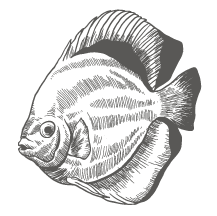Alcohol use disorder Symptoms and causes
Mutual-support groups provide peer support for stopping or reducing drinking. Group meetings are available in most communities at low or no cost, and at convenient times and locations—including an increasing presence online. This means they can be especially helpful to individuals at risk for relapse to drinking.

It’s a disease of brain function and requires medical and psychological treatments to control it. The terms chronic disease or chronic condition have multiple definitions. Major medical agencies and organizations disagree about which diseases are considered After-Work Wine: The Dangers of Drinking to Cope with Stress chronic, according to a 2016 article published in the journal Frontiers in Public Health. Many people say that you can never become an alcoholic if you choose to never drink alcohol. However, that logic doesn’t mean that alcoholism isn’t a disease.
The Problem With Calling Someone an “Alcoholic”
Not only does AUD affect the health of the person with the disease, but it also impacts the lives of those around them. Medications, behavioral therapies, and social support groups are among the strategies to combat this disorder. There are effective ways to treat this disease and steps you can take to help a loved one enter recovery. This article discusses alcohol use disorder symptoms and strategies for treatment and intervention. Societal factors include level of economic development, culture, social norms, availability of alcohol, and implementation and enforcement of alcohol policies.
According to the theory, genes play a strong role in the development of alcoholism. To learn more about alcohol treatment options and search for quality care near you, please visit the NIAAA Alcohol Treatment Navigator. The sooner you recognize there may be a problem and talk to your healthcare provider, the better your recovery chances. Your https://trading-market.org/alcoholic-narcissist-how-the-two-conditions-are/ treatment setting will depend on your stage of recovery and the severity of your illness. You may need inpatient medical (hospital), residential rehabilitation (rehab), outpatient intensive therapy or outpatient maintenance. On its own, AUD is not considered a qualifying disability when applying for Social Security disability benefits.
The Neurobiology of Alcoholism
Hosted by Amy Morin, LCSW, this episode of The Verywell Mind Podcast shares strategies for coping with alcohol cravings and other addictions, featuring addiction specialist John Umhau, MD. Health, safety and socioeconomic problems attributable to alcohol can be reduced when governments formulate and implement appropriate policies. The National Council on Alcoholism and Drug Dependence and AlcoholScreening.org offer more comprehensive self-tests. These tests can help you assess whether you misuse alcohol. This is an example of a mental obsession – a thought process over which you have no control. Alcohol use that turns into a use disorder develops in stages.
- In general, treatments for alcohol use disorder aim to alleviate withdrawal symptoms, stop or reduce alcohol use, and give patients behavioral skills and knowledge that can help them either stop drinking or maintain a healthy level of alcohol use.
- A hit on six or more questions can be considered a severe case of AUD.
- It can be hard to identify the lines between casual and occasional drinking and unhealthy alcohol use including alcohol use disorder.
- Your treatment setting will depend on your stage of recovery and the severity of your illness.
- Definitions include disorder of human functions with signs and symptoms not caused by physical injury.
- This process, however, can bring about the unpleasant and potentially serious symptoms of alcohol withdrawal syndrome.
And also a group that relies on what it calls God or a Higher Power. Under the direction of licensed therapists or counselors, behavioral therapies involve psychological strategies to modify drinking behaviors. The therapy goals are to develop the skills needed to manage your habits, build social support, set and work toward realistic goals, and deal with or avoid things that trigger drinking.



